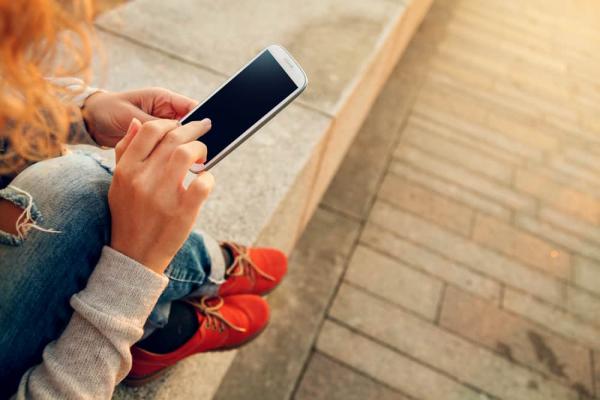
You've seen the studies. You've heard that being connected to your device all the time is precisely what is disconnecting you from the world. You may even recognize that you have entered the Zombie Apocalypse - a world full of people walking around, staring down and wildly swerving through crowds — in a state of living, but not really life.
You're probably reading this as you're scrolling through your social feed on your phone or tablet right now. But somewhere in your mind, you clicked on an article about trying to free yourself from your phone. Because somewhere in that mind, you realize you probably need to.
Consider these seven simple tips to limiting your phone usage:
1. Wear a watch
I used to check my phone a lot because I "needed" to know what time it was. Watches are more discreet, not nearly as dishonest (because let's face it, you were really checking to see if someone was messaging you back), and they actually do tell you what time it is. Fancy that.
2. Turn off notifications
Notifications are probably the biggest offender in screen-time usage. If you have them set on your email accounts, your social accounts and your IM and message apps, you could be getting notifications all day long. While you may need one or two of these accounts to be readily available, you don't need to know right away about every person who joins Instagram, every re-pin of your pins, retweet of your tweets, or piece of junk email that arrives. Is reading a stranger's comment on your friend's post really so important you have to know right away? Consider shutting off notifications and checking in on things a little less often.
3. Leave your cell phone alone
I recently read an article in the Harvard Business Review titled "Just Hearing Your Phone Buzz Hurts Your Productivity," as well as a study in "Social Psychology," titled "The Mere Presence of a Cell Phone May be Distracting." Both portray how just having your phone with you or near you is distracting, and makes you less productive.
So put it away. At work, leave it in your bag or set it where you can't see it, on silent. If you're going to visit someone, consider leaving your phone in the car, so it's not even with you. If you cannot handle not looking at your phone for a time, that's probably a sure sign you need to disconnect a little.
4. Silence your phone
Try keeping your phone on silent whenever you don't actually need it. Or — gasp — turn it off when you're in important places or situations to avoid rude and unnecessary interruptions.
5. Use your laptop or desktop
Cell phones and tablets are convenient when out and about. But they're also slower for doing real work. Google Voice and Swyping will rarely be as fast as typing. If you have an email to send, an invite to create or a lengthy item to post, consider using your laptop or desktop. It will save you a little time and keep you off your phone, too.
6. Call people
I know it's old school. But isn't that what you're going for - less staring-at-your-screen time? We've all had those half-hour back and forth texting conversations that could have easily been solved with a two-minute phone call. Evaluate the type of conversation you need to have and determine if a text can appropriately resolve things, or if a phone call would be better and more meaningful.
7. Be where you are
Choose to be present where you are, without the distractions of your phone. Enjoy the time with friends, with family, with co-workers, even by yourself, instead of letting your phone be an indicator that you have more important things to do. Use your phone when necessary, then put it away again.
Giving these seven habits a try may leave you feeling a bit lost for a while; but you will also feel a little less distracted, a little more productive and a lot more connected to the people around you. Don't worry; your phone will get along just fine without you.

